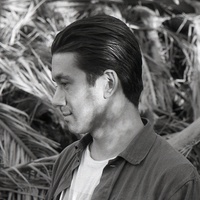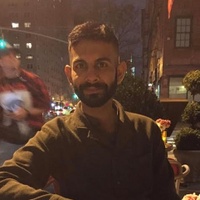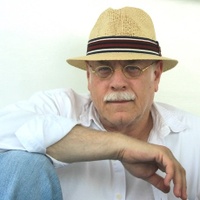As told to Grayson Haver Currin, 1566 words.
Tags: Music, Process, Inspiration, Identity, Collaboration, Day jobs.
On honoring a family’s artistic legacy
Musician Tashi Wada on what it means to grow up in a family of artists, the pleasures of doing archival work, and the need to always be stretching yourself creatively.At what point did you realize that both of your parents were artists?
It came in stages. There was definitely an awakening, or an understanding of what being an artist and a musician meant. We were in a community of artists in downtown New York, in SoHo, so it was just everywhere. Of course, I went to school, so there was that reality, too. Life was a process of differentiating between these worlds and how they overlap. It was very fluid. Putting the art into some historical context—understanding where what my father was doing came from—arrived later. My dad was more trained as a visual artist, a sculptor. You have to follow each trajectory its own way, and at some point, they just meet. It takes awhile to understand why you’re doing something.
At what point did you realize that everyone else’s parents weren’t artists, or that something was different with your family?
We lived in one of these Fluxus co-op buildings, so it was a lot of Fluxus artists. Simone Forti was our nextdoor neighbor. Nam June Paik lived upstairs. At school, since it was New York, it was a pretty eclectic mix of people. But the specific memory I have was we were asked to go around the class and say what our parents did. My dad did all kinds of plumbing in these buildings in SoHo, but I kind of knew that wasn’t really what he did. It was a side of his life, but it was not how he identified as a person. I didn’t really have a good answer in class. I remember going home and asking my mom, “What does Dad do?” She said, “Well, just say he’s self-employed.” Somehow that made sense. It makes sense to me now, as an adult—I’ve chosen a life that is determining it day-to-day, month-to-month. It feels self-directed.
Did your upbringing allow you to feel like that was OK?
For sure. With my family, there was a lot of scrambling all of the time to make things work. My dad worked all day at a job, or jobs, and then he made his work at night and on weekends. I got a sense of this around-the-clock mentality; it’s very immersive. I feel that these days, too. You try to find ways to give yourself some delineation between your work as an artist and the rest of your life, but it’s hard to see the difference sometimes.
What is a separate area of interest that gives you some delineation right now?
One that I am passionate about is that I do archival work. I’ve been working on the archive of the composer James Tenney, who I studied with at Cal Arts shortly before he passed away. It’s very related to all of my interests, but it does feel like a separate thing. I fell into it, because I’ve done some amount of work dealing with my father’s archives. I also do a small label called Saltern, where I do some archival releases and work with older material, things I feel like I have unique access to. It’s not something I was trained to do, but I feel like I can do it intuitively.
Are there moments where an idea or concept you find while doing this archival work filters into your own art?
I’m absorbing a lot of information, but one thing I’ve gotten from working with these artists who were coming of age in the ’60s and ’70s is an interesting perspective on the culture and how people were connected—just seeing who, through letters, was in touch with whom, and how that reflects on the community. Something that’s inspiring to me from that era is how people were really in dialogue with each other. They weren’t necessarily working in the same medium. It was very fluid, and it had this propulsion. Something that was important for me for my new record was how these different worlds are intersecting. All the things in this record were relationships I’ve had with people since birth, in some cases. Having this sense of a community is interesting to me.
That worked out well with the label RVNG, because they have this series of intergenerational collaborations. At a younger age, when I was starting to write music more, I was conscious of my dad’s work and his legacy. It’s something I could have shied away from, but it felt natural to not avoid it, but rather build on that. Both of my parents are immigrants, and when your parents are immigrants, there is this kind of need to establish a new family and a new sense of community where you are, and build on that. Working within the family feels important.
Does that owe itself in part to having less of your immediate family and extended family nearby, or less of an established family network?
It is apparent within my family that, with the smaller units that often arrive in the United States, it is especially tight. We didn’t have extended family down the street to rely on, and it was slightly nomadic. For both of my parents, it was a very important and necessary step for them to move to the United States to explore the world and to leave where they were from. With that comes a certain loneliness, and I think a lot of that community seems to have been built around a shared interest in art and music and new ideas.
Do you think that relationship still factors into your work with your father?
Yes, but part of it is also practical. The first time I performed with my dad, someone had asked him to do a performance of one of his earlier works. The electronics system that was part of that work no longer existed, so I re-created that system live. Helping my dad with his archive and bringing some of his work to the public for the first time, I feel like I am the person who can be the liaison. Beyond that, it has always felt very natural. I was happy to be able to involve my dad in this project. He’s not performing as much these days, so it was like a last-chance window to do something like this. It happened just at the right time.
I like all the collisions of things going on. Most of my previous records have been other performers realizing my work. On this new record, I draw myself into it and draw all of these different people I work with into one larger work. It captures a larger scope of what interests me, what I do, and what I pursue. Maybe this is a process of getting older, of accepting these different worlds that I’m involved in and allowing them to interact in a way that’s more open.
That seems like a gift, to work with your dad in that way. Do you ever worry about your work and your ideas being subsumed by his reputation? How do you work against that?
It’s hard for me to necessarily see outside of that universe. Sometimes I have a sense of how my work is perceived in relation to my father’s, but I tend to limit my understanding to my own personal space and how I feel about it. I leave the rest to the world to sort out. With this new record, it feels like I’m growing and changing and stretching. It is the best representation of all of the elements and things going on in my world, and how all of these things intersect and play off of each other.
As you were planning or making the record, how did the sense that you were stretching manifest itself?
I felt a little like I had maybe taken on too much. I didn’t quite know where it was going. But I really believed in it and that it was going to lead to the next thing. That’s an important aspect of making new work: In making this new work, it will allow you to make the next work—and to keep going.
How did you deal with that feeling of being in too deep, or stretched too thin?
You just have to focus on what is in front of you, and not try to see a few steps ahead. Just do each thing one by one, and allow it to lead you to where it is going.
When you started to make the record, was trying to stretch a deliberate choice? Is it always?
I don’t think it was a conscious choice, but I feel like we are all in the midst of that right now. This world right now can feel very dire. But the more overall feeling I have is one of stretching—growing pains, a lot of ups and downs, but it seems necessary. We’re pushing up against a lot of things and, hopefully through all of this, we reach somewhere new that’s better for people. Maybe it doesn’t feel like it at the moment, but there is a lot of growth and realization happening on everyone’s part.
Five Things That Inspire Tashi Wada Right Now
Julia
Our dogs
A renewed love of fiction
My parents
The discovery of new (and old) harmonies




